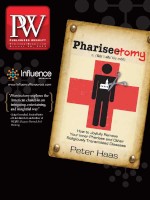It was 1998, the dark ages in publishing.
My agent couldn’t sell either of my two novels. Publishers had been really excited about them, but they were ultimately too uncomfortable with my genre-bending to bite. They wanted a suspense novel or an erotic novel, something less sophisticated…or more sophisticated. What they didn’t want was an erotic novel with a mystery at its heart and a strong female main character.
There was no way to market a book that was so hard to categorize, publishers said.
But I was in advertising and had been online since 1994. I was fascinated with the marketing opportunities I imagined possible. What if I did an online marketing test for my novel and got some sales? Then maybe my agent could take my marketing plan to publishers and show them how to market my work.
I figured I could print up a few copies and also offer an electronic download online.
At the time the only place to sell an electronic book was from my own Web site. And the only place to sell the printed book online was Amazon—they’d just started the Advantage program to “level the playing field” for anyone with a book, an ISBN, and a dream.
I didn’t think that running a marketing experiment was anything terrible. But my agent said if I self-published, no one would ever take me seriously again. She said it would end my career before it began.
That seemed absurd to me. I had many friends who were painters, photographers, sculptors, musicians, and indie artists who operated creatively and on their own. I didn’t see what I wanted to do as being any different.
Oh but it was. I remember the snowy day the books arrived from the printer. As soon as I unboxed them, I grabbed a few and drove over to my local bookstore. The owner was inside, on a ladder. I told her about the book and asked if I could give her a copy.
She wouldn’t even turn around to face me. “I would never look at a self-published book,” she’d said with utter derision.
I walked back outside, stood in the snow and burst into tears. And out of those tears came determination. I became tireless in marketing the book, and within the next few months I sold almost 3,000 e- and print copies. Lip Service became the highest ranked independent press title according to an Amazon press statement.
Six months after that snowy day, Lip Service, which featured a privileged New York City housewife who works as a phone sex fantasist as a means of liberation, became the first self-published book and the first e-book discovered online (at Amazon by Literary Guild and Doubleday Book club editor Erica Tsang) to go on to be traditionally published (by Pocket in 2000) bought by my current publisher at Atria, Judith Curr. The news landed me in the New York Times, the Wall St. Journal, Time magazine, Newsweek, the Today show, Bloomberg news, NPR, Fox News, and more, with every host and reporter (including Katie Couric) blushing when they talked to me about the topics in the book (very explicit phone sex) and the cover (x-rated).
Lip Service sold modestly in stores—booksellers said the cover just made it an embarrassing hand sell— but at the mail-order book clubs and with online retailers, it sold over 75,000 copies within the first month, and rights were eventually sold in 10 countries.
Thirteen years later, Atria is reissuing Lip Service with a brand new cover. It’s never been out of print. The publishing world could not be more different today than it was when I began this journey.
In a lot of ways it’s very gratifying. The world many of us—Douglas Clegg, Seth Godin, Doug Ruskoff and others—envisioned is here. The rules have all been bent or broken and the future is wide open to anyone with time, energy, and a good idea.
M.J. Rose, the founder of AuthorBuzz.com, has written 12 novels including her most recent, The Book of Lost Fragrances.



 Volume 259
Issue 34
08/20/2012
Volume 259
Issue 34
08/20/2012





